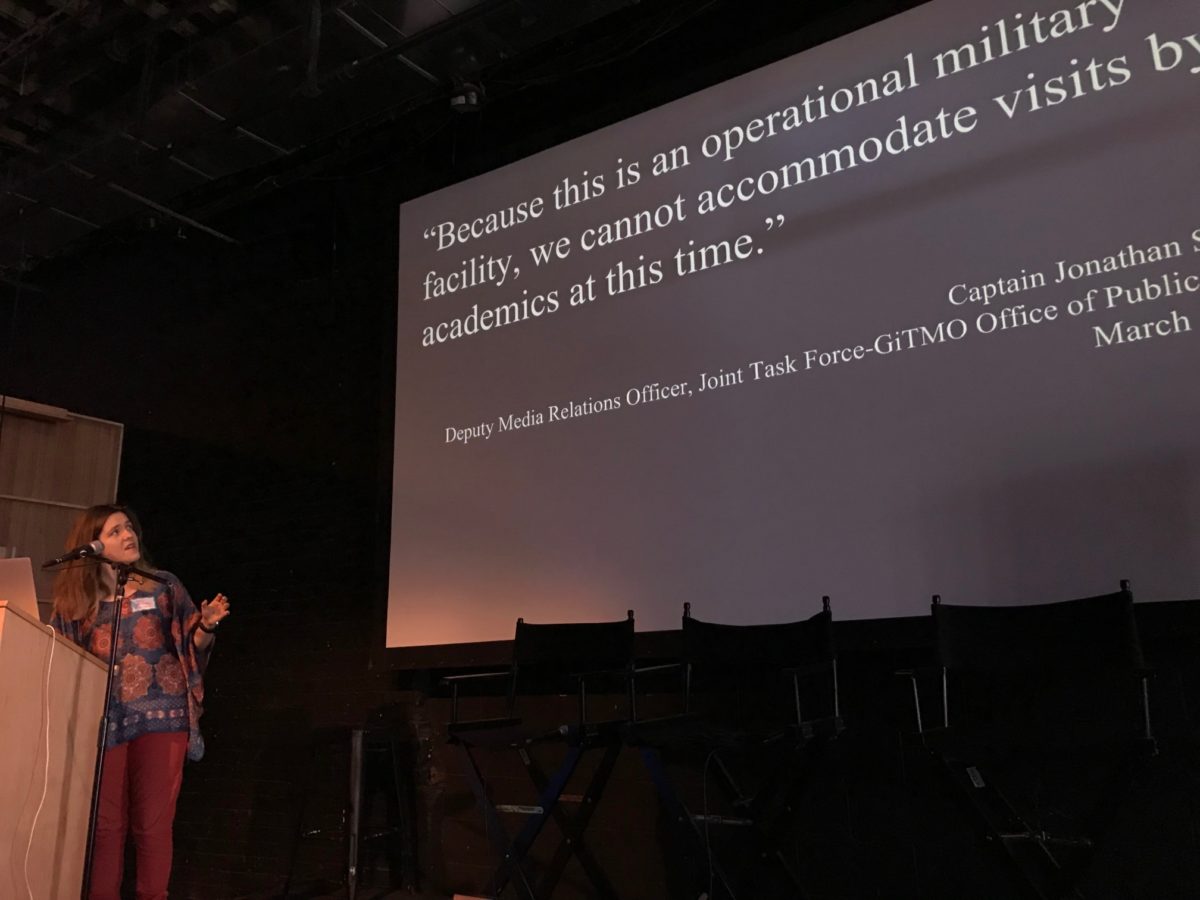When the Obama White House joined Snapchat, it made sure that posts to that account would not be ephemeral, in accordance with presidential records rules, according to the Washington Post. It turns out that not every other federal office worries as much about maintaining a record of their social media activity, however.
Muira McCammon is a Philadelphia writer who has researched the social media activity at the Guantanamo Bay Naval Base in Cuba. She found that tweets had a way of coming and going while she was researching the base, and she got curious about what kind of rules were in place governing the preservation of government social media activity.
“So many of these federal agencies do have Twitter feeds that we aren’t paying attention to in the media,” McCammon said at last weekend’s Radical Networks conference in Brooklyn, an annual arts festival that fosters critical conversation about technology.
In 2015 she started researching the base because she wanted to find out more about the library that had been built there. She found a report on the conditions there but found that many of the links included in the appendix had rotted and no longer worked (she tells this story in more detail in a post on an MIT blog). You can read McCammon’s findings here.
She started emailing the Department of Defense to see if they could help her find the missing materials. She got a series of replies, but ultimately they told her that it hadn’t been possible to find the now lost references from that report.
“I didn’t really think about the Wayback Machine when I started to send the emails,” McCammon admitted.
As she kept working, though, she learned about more tools to preserve the history of the internet and eventually learned about the Internet Archive, the San Francisco-based nonprofit that stores old web pages and other media. She contacted the Department of Defense and told them that she’d found a place that had preserved all the old links. They were not, however, at all interested in her assistance restoring access to that information.
“I eventually stopped emailing the Department of Defense,” she said. “You have to let some things go.”
As she worked on this project, she discovered the base’s Twitter feed, and she became interested in following it.
She kept copies of lots of tweets. They went through a period of posting aphorisms. They also posted photos of developments at the base, such as one about fiberoptic cable getting installed and another about a pepper-spray training.
McCammon has now become well versed in sites that automatically archive the internet and also personally preserves the parts that concern her the most. She especially likes Web Recorder these days.
“Around August, what I noticed was the tweets started to disappear,” she said. Anything that was even mildly controversial disappeared. All the aphorisms disappeared. The post about getting fiberoptic cable went away but the one about training for pepper spray did not.
On one of her slides, she wrote: “To what extent is a tweet a federal record?”
As she researched the issue, she found some agencies categorized them as records and some didn’t.
The public sometimes gets very interested in the Twitter activity of these institutions, but mostly they get ignored by everyone except those who work very closely with them, and academics and writers could be missing out on critical clues about changing priorities and strategies in the federal government as they miss what comes and goes on these feeds.
She said, “These federal agencies have no self interest in preserving these records themselves.”
Join the conversation!
Find news, events, jobs and people who share your interests on Technical.ly's open community Slack
